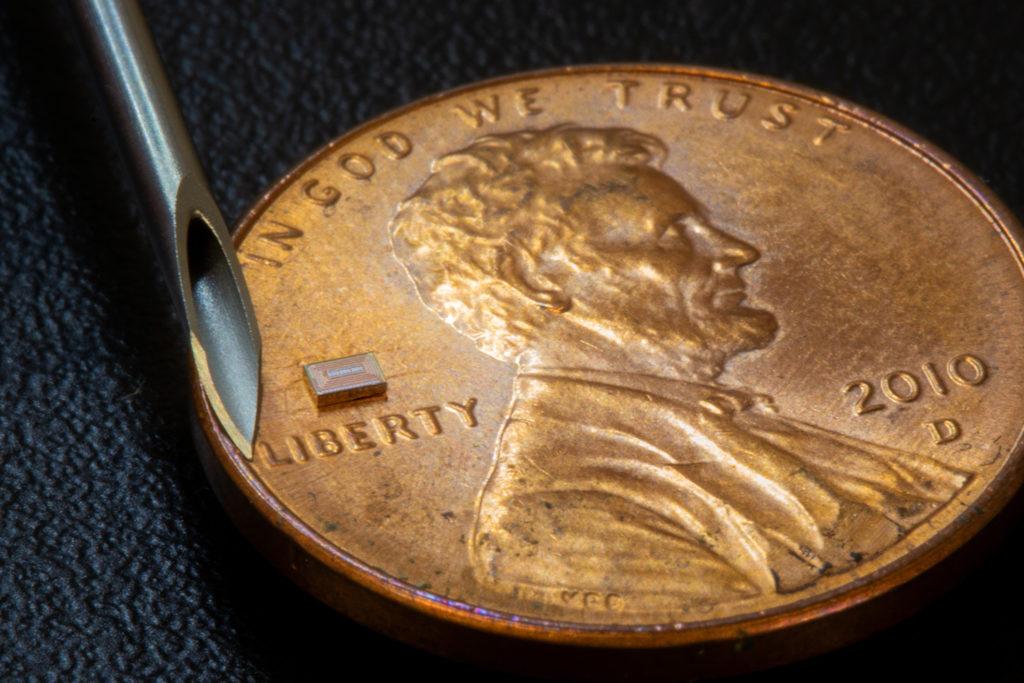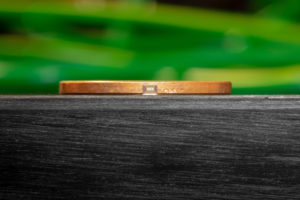In a twisted sense, the threat of random UA checks acts as a godsend to people in substance abuse treatment. A dirty test usually spells immediate nasty consequences like treatment discharge or a failed EAP report. But outpatient counselors and sober living house managers can only loom over you with that pee cup for so long. For recovering alcoholics, this accountability remains one of the most elusive pitfalls of long term sobriety. It’s easy to backslide into bad habits when no one is watching (you’re not actually fooling your sponsor, by the way). But thanks to UC San Diego’s Jacobs School of Engineering, there is hope on the horizon for long term sober accountability. They are currently developing an injectable alcohol biosensor chip that continuously monitors blood alcohol content (BAC).

Injectable Alcohol Biosensor Under Development
UCSD engineers designed this biosensor to sit under the skin. It continuously measures alcohol levels in the blood by using extraordinary wireless technology to help power the chip. This miniature injectable alcohol biosensor was designed to consume as little energy as possible in order to work long term. UCSD engineers presented their research on April 10th and the 2018 IEEE Custom Integrated Circuits Conference.
New research displayed at these meetings remains preliminary. Although it hasn’t begun live testing yet, the technology centers around creating a monitored recovery cyborg. Sound too good to be true? Well, the heavy lifting of sobriety will always be primarily a psychological exercise. Technology will never replace therapy. Regardless, recovering alcoholics stand to benefit tremendously from this chip implant.
How It Works
 The chip specializes in convenient routine BAC monitoring. So how does this injectable alcohol biosensor work, exactly? Here are the highlights:
The chip specializes in convenient routine BAC monitoring. So how does this injectable alcohol biosensor work, exactly? Here are the highlights:
Ultra-low energy profile. This chip uses 970 nanowatts total to perform its monitoring function. This is one million times less power than a smart phone uses to make a phone call.
Wireless power generation. The biosensor connects wirelessly to a wearable smart device, likely a smartwach or smartphone. This device helps power the chip remotely.
Coated with alcohol oxidase. This enzyme reacts to alcohol in the bloodstream to create a safe byproduct. So when alcohol is present in the bloodstream, the chip can measure the byproduct to report BAC wirelessly.
Doesn’t generate heat or toxic byproducts. This is essential since the chip is actually situated under the skin.
Signal wirelessly transmitted to smart devices nearby. With cloud-based technologies, this means that readings could also be monitored by sponsors or other third party. Accountability!
Injected under the skin without surgery. Although the sensor is still under development, UCSD engineers tested it in a human serum under pig skin. They are now looking forward to testing the chip on live animals.
Potential to work for other substances. According to Dr. Drew Hall, “This is a proof-of-concept platform technology. We’ve shown that this chip can work for alcohol, but we envision creating others that can detect different substances of abuse.”
For more information on the technical specs of this injectable alcohol biosensor, check out UCSD’s press release.
Injectable Alcohol Biosensor Fosters Accountability
One of the hardest parts of recovery is the knowledge that you can potentially lie your way out of relapses. Denial helps assuage cognitive dissonance. But that avoidant attitude snowballs really quickly into classic alcoholic behavior. One relapse becomes two, which turns into hidden bottles, which explodes into a full-on bender. Next thing you know, you’re back in detox.
An injectable alcohol biosensor by itself wouldn’t change this trajectory. The greater accountability it potentially provides relies on a support system like an AA sponsor or friend/family member who cares enough to intervene.
Alcoholism: Understanding Tools Versus Cures
There truly is no end-all cure for the devastating disease of alcoholism. Recovery relies on hard work, dedication, and therapy to build a foundation for sobriety to flourish. This injectable alcohol biosensor simply acts as another tool to encourage accountability in long term recovery. But with the understanding that tools can mean the difference between life and death for recovering alcoholics, we look forward to progress on this extraordinary biosensor.
For updates, subscribe to UCSD’s online newsletter: https://ucsdnews.ucsd.edu/subscribe

